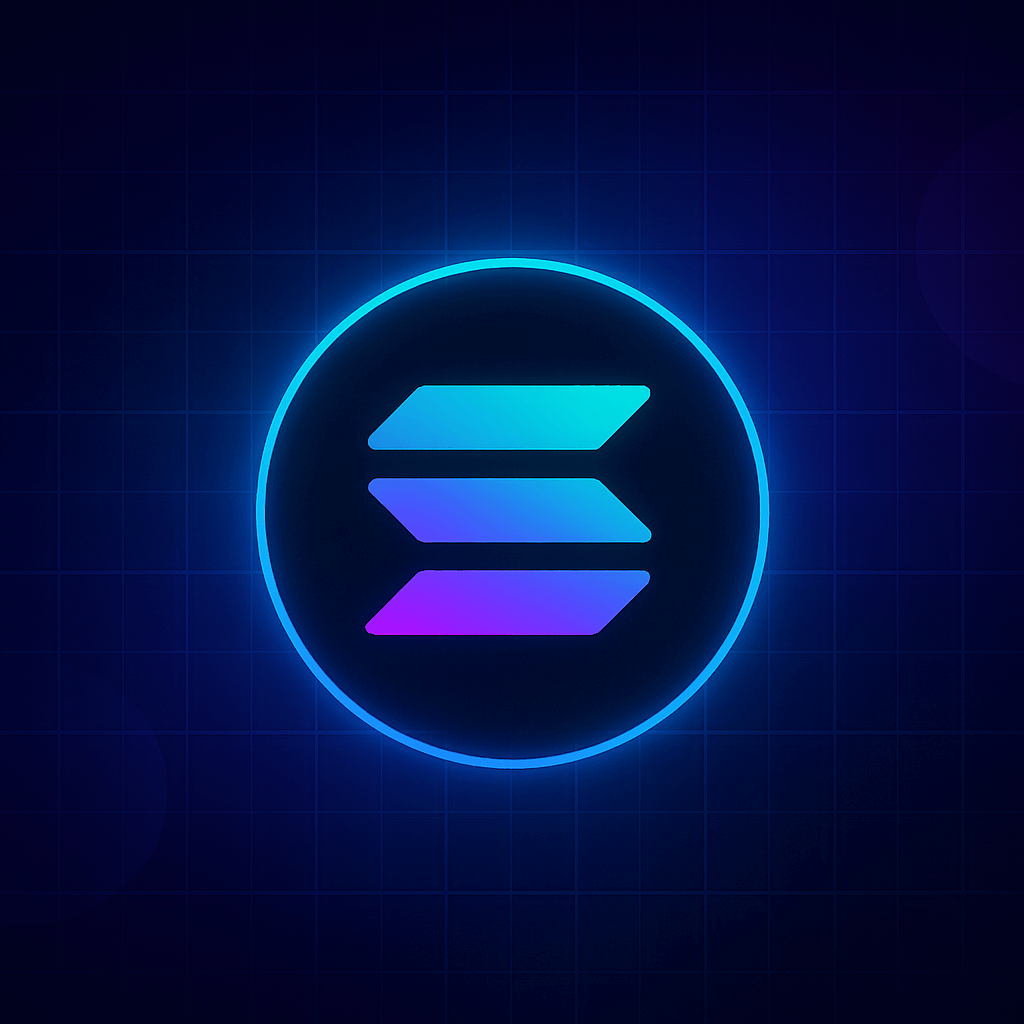Crypto & DeFi
What Is a Crypto Wallet?
August 23, 2024
Crypto & DeFi
August 23, 2024

Learn what a crypto wallet is and the different types
"Crypto wallet" is a term you'll encounter often once you start exploring the world of cryptocurrency. In contrast to traditional wallets that hold physical cash and cards, a crypto wallet serves as both a gateway to your digital assets and a safeguard, protecting them from unauthorized access.
Understanding how a crypto wallet works is essential for anyone looking to trade, invest, or simply hold cryptocurrencies, as it plays a crucial role in managing your digital wealth. In this article, we'll break down the different types of crypto wallets, how they function, and why choosing the right one is key to your safe cryptocurrency journey.
A crypto wallet is a digital tool that allows users to store, manage, and interact with their cryptocurrencies. Unlike traditional wallets that hold physical cash, crypto wallets don't actually store your digital assets. Instead, they store the cryptographic keys that give you access to your cryptocurrencies on the blockchain.
These wallets work through a system of public and private keys:
Public Key: This is your wallet address, similar to a bank account number. You can share this with others to receive cryptocurrency.
Private Key: This is like your secret PIN. It allows you to access and manage your funds. Never share your private key with anyone.
When you make a transaction, your wallet uses your private key to create a digital signature. This signature proves your ownership of the funds and authorizes the transaction. The blockchain network then verifies this signature and processes the transaction.
Crypto wallets are versatile tools with a range of functionalities that go beyond simple storage. Here are some of the key uses of a crypto wallet:
Storing Digital Assets: The primary use of a crypto wallet is to securely store digital assets. Whether you have Bitcoin, Ethereum, or any other cryptocurrency, your wallet keeps these assets safe by managing the private keys.
Sending and Receiving Cryptocurrency: A crypto wallet enables you to send and receive cryptocurrencies easily. Whether you're paying for goods and services, transferring funds to friends and family, or making an investment, your wallet handles these transactions securely.
Interacting with Decentralized Applications (dApps): Many crypto wallets allow users to connect with decentralized applications (dApps). These are applications that run on blockchain networks, such as Ethereum, and can include everything from decentralized finance (DeFi) platforms to games.
If you're curious to learn more about DeFi, check out our article What is DeFi and How Does It Work.
Crypto wallets are primarily divided into two categories:
Hot Wallets
Cold Wallets
Each category offers distinct advantages and disadvantages, making it essential to understand their key features to determine which one is most suitable for your needs.
Hot wallets are digital wallets that are always connected to the internet, providing users with quick and easy access to their cryptocurrencies. These wallets store your private keys online, either on a server controlled by the wallet provider, on your internet browser, or on your internet-connected device.
This constant connectivity allows for seamless transactions and real-time updates of your cryptocurrency balances. Hot wallets are particularly popular among active traders and those who frequently engage with decentralized applications (DApps) due to their convenience and speed.
There are various subtypes of hot wallets, such as:
Mobile wallets are smartphone applications that allow users to store, manage, and transact with cryptocurrencies on their mobile devices. These wallets use the convenience and portability of smartphones to provide users with constant access to their digital assets.
Mobile wallets often feature user-friendly interfaces, making them accessible to both novice and experienced crypto users. They typically support a wide range of cryptocurrencies and offer features like QR code scanning for easy address input and near-field communication (NFC) for contactless payments.
Pros: Portable, user-friendly interfaces, convenient for on-the-go transactions.
Cons: Security risks due to internet connectivity, and potential vulnerabilities in mobile software.
Examples: Trust Wallet, Mycelium, MetaMask.
Browser wallets are extensions or web applications that run within your web browser. They allow you to interact with the blockchain and manage your cryptocurrencies directly from your browser.
Pros: Easy to use, readily accessible, and often integrated with decentralized applications (dApps).
Cons: Susceptible to security risks if your browser is compromised, and may require additional security measures like browser extensions or hardware wallets for enhanced protection.
Examples: MetaMask, Phantom, Coinbase Wallet.
Desktop wallets are software applications that you install on your personal computer or laptop to manage your cryptocurrencies. These wallets store your private keys on your computer's hard drive, giving you full control over your digital assets.
Desktop wallets often offer more advanced features compared to their mobile counterparts, such as integration with hardware wallets for added security. They are particularly popular among users who prefer to manage their cryptocurrencies from a dedicated device rather than a smartphone.
Pros: Full control over private keys, advanced features, integration with hardware wallets.
Cons: Vulnerable to malware, hacking, and physical damage to the device. Harder to access from other devices.
Examples: Electrum, Exodus, Atomic Wallet.
Cold wallets, also known as offline wallets, are a type of cryptocurrency storage that keeps your private keys isolated from internet-connected devices. This isolation significantly reduces the risk of unauthorized access to your funds.
Cold wallets can take various forms, including hardware devices, paper wallets, or even a simple piece of paper with your keys written on it. The defining characteristic of a cold wallet is that it generates and stores your private keys in an offline environment, making it virtually impossible for online attackers to access them.
There are various types of cold wallets, such as:
Hardware wallets are physical devices that store your private keys securely offline. They are considered one of the most secure methods of storing cryptocurrencies, as they provide a physical barrier against online threats.
Pros: High security, reduced risk of hacking, and protection against malware.
Cons: Limited accessibility, slower transaction times, and potential loss or damage of the physical device.
Examples: Ledger Nano S, Trezor Model T.
Paper wallets represent one of the most basic forms of cold storage for cryptocurrencies. They are physical documents that contain both the public and private keys of a cryptocurrency address, often presented in the form of QR codes for easy scanning.
To create a paper wallet, users typically generate a new cryptocurrency address using a secure, offline computer and then print the corresponding keys onto a piece of paper. This method ensures that the keys are never stored digitally, significantly reducing the risk of online theft or hacking.
Pros: High security, offline storage, immune to online hacking.
Cons: Vulnerable to physical damage and loss and difficult to use for frequent transactions.
Examples: Printed paper wallets with QR codes.
As the crypto industry evolves, so do the tools that support it. One of the most exciting developments in recent years is the emergence of smart contract wallets. These wallets represent a significant improvement in user experience (UX) for Ethereum and other blockchain networks.
Smart contract wallets are advanced wallets that leverage smart contracts to offer more functionality and flexibility. Unlike traditional wallets, which rely solely on private keys, smart contract wallets can include features like multi-signature support, social auth signing, account recovery options, and spending limits. Some of the most popular smart contract wallets include: Argent, Gnosis Safe, and Loopring Wallet
The Ethereum network, known for its vast ecosystem of dApps, has seen significant improvements in wallet technology aimed at enhancing user experience.
Traditional Ethereum wallets can be cumbersome to use, especially for newcomers. Smart contract wallets and other innovations are addressing these pain points by simplifying interactions and providing user-friendly interfaces.
Social Auth Signing: Smart wallets allow users to use social logins, such as Gmail or Twitter, to sign for transactions.
Gas Abstraction: New wallets are implementing gas abstraction, allowing users to pay transaction fees with tokens other than ETH, making the process more seamless.
Social Recovery: Instead of relying solely on private keys and 12 word seed phrases, some wallets now offer social recovery mechanisms, where trusted contacts can help recover your account if you lose access.
Layer 2 Integration: With Ethereum's growing adoption of Layer 2 solutions, wallets are integrating these technologies to offer faster and cheaper transactions without compromising security.
While smart contract wallets offer numerous advantages, they're not without drawbacks:
Potential vulnerabilities in the smart contract code
Higher gas fees for deployment
Less compatible with some older DApps
As Ethereum and other smart contract platforms evolve, we can expect to see continued innovation in wallet technology, further improving security, usability, and functionality for cryptocurrency users.
Crypto wallets are indispensable tools for anyone involved in the world of digital assets. Whether you're a casual user or a seasoned crypto veteran, understanding the different types of wallets and their functionalities is essential for safeguarding your assets and maximizing your crypto experience.
As the industry evolves, new types of wallets, like smart contract wallets, are pushing the boundaries of what's possible, offering enhanced security and user experience, especially in networks like Ethereum. By choosing the right wallet and staying informed about new developments, you can ensure that your journey in the world of cryptocurrency is both secure and efficient!# What Is a Crypto Wallet?
"Crypto wallet" is a term you'll encounter often once you start exploring the world of cryptocurrency. In contrast to traditional wallets that hold physical cash and cards, a crypto wallet serves as both a gateway to your digital assets and a safeguard, protecting them from unauthorized access.
Understanding how a crypto wallet works is essential for anyone looking to trade, invest, or simply hold cryptocurrencies, as it plays a crucial role in managing your digital wealth. In this article, we'll break down the different types of crypto wallets, how they function, and why choosing the right one is key to your safe cryptocurrency journey.
A crypto wallet is a digital tool that allows users to store, manage, and interact with their cryptocurrencies. Unlike traditional wallets that hold physical cash, crypto wallets don't actually store your digital assets. Instead, they store the cryptographic keys that give you access to your cryptocurrencies on the blockchain.
These wallets work through a system of public and private keys:
Public Key: This is your wallet address, similar to a bank account number. You can share this with others to receive cryptocurrency.
Private Key: This is like your secret PIN. It allows you to access and manage your funds. Never share your private key with anyone.
When you make a transaction, your wallet uses your private key to create a digital signature. This signature proves your ownership of the funds and authorizes the transaction. The blockchain network then verifies this signature and processes the transaction.
Crypto wallets are versatile tools with a range of functionalities that go beyond simple storage. Here are some of the key uses of a crypto wallet:
Storing Digital Assets: The primary use of a crypto wallet is to securely store digital assets. Whether you have Bitcoin, Ethereum, or any other cryptocurrency, your wallet keeps these assets safe by managing the private keys.
Sending and Receiving Cryptocurrency: A crypto wallet enables you to send and receive cryptocurrencies easily. Whether you're paying for goods and services, transferring funds to friends and family, or making an investment, your wallet handles these transactions securely.
Interacting with Decentralized Applications (dApps): Many crypto wallets allow users to connect with decentralized applications (dApps). These are applications that run on blockchain networks, such as Ethereum, and can include everything from decentralized finance (DeFi) platforms to games.
Crypto wallets are primarily divided into two categories:
Hot Wallets
Cold Wallets
Each category offers distinct advantages and disadvantages, making it essential to understand their key features to determine which one is most suitable for your needs.
Hot wallets are digital wallets that are always connected to the internet, providing users with quick and easy access to their cryptocurrencies. These wallets store your private keys online, either on a server controlled by the wallet provider, on your internet browser, or on your internet-connected device.
This constant connectivity allows for seamless transactions and real-time updates of your cryptocurrency balances. Hot wallets are particularly popular among active traders and those who frequently engage with decentralized applications (DApps) due to their convenience and speed.
There are various subtypes of hot wallets, such as:
Mobile wallets are smartphone applications that allow users to store, manage, and transact with cryptocurrencies on their mobile devices. These wallets use the convenience and portability of smartphones to provide users with constant access to their digital assets.
Mobile wallets often feature user-friendly interfaces, making them accessible to both novice and experienced crypto users. They typically support a wide range of cryptocurrencies and offer features like QR code scanning for easy address input and near-field communication (NFC) for contactless payments.
Pros: Portable, user-friendly interfaces, convenient for on-the-go transactions.
Cons: Security risks due to internet connectivity, and potential vulnerabilities in mobile software.
Examples: Trust Wallet, Mycelium, MetaMask.
Browser wallets are extensions or web applications that run within your web browser. They allow you to interact with the blockchain and manage your cryptocurrencies directly from your browser.
Pros: Easy to use, readily accessible, and often integrated with decentralized applications (dApps).
Cons: Susceptible to security risks if your browser is compromised, and may require additional security measures like browser extensions or hardware wallets for enhanced protection.
Examples: MetaMask, Phantom, Coinbase Wallet.
Desktop wallets are software applications that you install on your personal computer or laptop to manage your cryptocurrencies. These wallets store your private keys on your computer's hard drive, giving you full control over your digital assets.
Desktop wallets often offer more advanced features compared to their mobile counterparts, such as integration with hardware wallets for added security. They are particularly popular among users who prefer to manage their cryptocurrencies from a dedicated device rather than a smartphone.
Pros: Full control over private keys, advanced features, integration with hardware wallets.
Cons: Vulnerable to malware, hacking, and physical damage to the device. Harder to access from other devices.
Examples: Electrum, Exodus, Atomic Wallet.
Cold wallets, also known as offline wallets, are a type of cryptocurrency storage that keeps your private keys isolated from internet-connected devices. This isolation significantly reduces the risk of unauthorized access to your funds.
Cold wallets can take various forms, including hardware devices, paper wallets, or even a simple piece of paper with your keys written on it. The defining characteristic of a cold wallet is that it generates and stores your private keys in an offline environment, making it virtually impossible for online attackers to access them.
There are various types of cold wallets, such as:
Hardware wallets are physical devices that store your private keys securely offline. They are considered one of the most secure methods of storing cryptocurrencies, as they provide a physical barrier against online threats.
Pros: High security, reduced risk of hacking, and protection against malware.
Cons: Limited accessibility, slower transaction times, and potential loss or damage of the physical device.
Examples: Ledger Nano S, Trezor Model T.
Paper wallets represent one of the most basic forms of cold storage for cryptocurrencies. They are physical documents that contain both the public and private keys of a cryptocurrency address, often presented in the form of QR codes for easy scanning.
To create a paper wallet, users typically generate a new cryptocurrency address using a secure, offline computer and then print the corresponding keys onto a piece of paper. This method ensures that the keys are never stored digitally, significantly reducing the risk of online theft or hacking.
Pros: High security, offline storage, immune to online hacking.
Cons: Vulnerable to physical damage and loss and difficult to use for frequent transactions.
Examples: Printed paper wallets with QR codes.
As the crypto industry evolves, so do the tools that support it. One of the most exciting developments in recent years is the emergence of smart contract wallets. These wallets represent a significant improvement in user experience (UX) for Ethereum and other blockchain networks.
Smart contract wallets are advanced wallets that leverage smart contracts to offer more functionality and flexibility. Unlike traditional wallets, which rely solely on private keys, smart contract wallets can include features like multi-signature support, social auth signing, account recovery options, and spending limits. Some of the most popular smart contract wallets include: Argent, Gnosis Safe, and Loopring Wallet
The Ethereum network, known for its vast ecosystem of dApps, has seen significant improvements in wallet technology aimed at enhancing user experience.
Traditional Ethereum wallets can be cumbersome to use, especially for newcomers. Smart contract wallets and other innovations are addressing these pain points by simplifying interactions and providing user-friendly interfaces.
Social Auth Signing: Smart wallets allow users to use social logins, such as Gmail or Twitter, to sign for transactions.
Gas Abstraction: New wallets are implementing gas abstraction, allowing users to pay transaction fees with tokens other than ETH, making the process more seamless.
Social Recovery: Instead of relying solely on private keys and 12 word seed phrases, some wallets now offer social recovery mechanisms, where trusted contacts can help recover your account if you lose access.
Layer 2 Integration: With Ethereum's growing adoption of Layer 2 solutions, wallets are integrating these technologies to offer faster and cheaper transactions without compromising security.
While smart contract wallets offer numerous advantages, they're not without drawbacks:
Potential vulnerabilities in the smart contract code
Higher gas fees for deployment
Less compatible with some older DApps
As Ethereum and other smart contract platforms evolve, we can expect to see continued innovation in wallet technology, further improving security, usability, and functionality for cryptocurrency users.
Crypto wallets are indispensable tools for anyone involved in the world of digital assets. Whether you're a casual user or a seasoned crypto veteran, understanding the different types of wallets and their functionalities is essential for safeguarding your assets and maximizing your crypto experience.
As the industry evolves, new types of wallets, like smart contract wallets, are pushing the boundaries of what's possible, offering enhanced security and user experience, especially in networks like Ethereum. By choosing the right wallet and staying informed about new developments, you can ensure that your journey in the world of cryptocurrency is both secure and efficient!
Rocko is a new platform that enables crypto owners to easily and securely borrow from popular DeFi protocols like Aave, Compound, and Morpho and get funds in minutes — no experience needed! Use the loan to purchase real estate, pay down higher-rate debt, make everyday purchases, and much more.
Rocko also provides a loan management dashboard and tools like text and email alerts to help manage your loan and collateral. The Rocko team consists of experienced crypto enthusiasts who are ready to help you with any questions you may have. You can join the Rocko Discord server, follow our Twitter account, or visit our resource center to learn more about DeFi borrowing.
Sign up for Rocko and get a loan today!
Rocko does not guarantee the reliability of the Site content and shall not be held liable for any errors, omissions, or inaccuracies. The opinions and views expressed in any articles on rocko.co are solely those of the author(s) and do not reflect the opinions of Rocko. The information provided on the Site is for informational purposes only, and it does not constitute an endorsement of any of the products and services discussed or investment, financial, or trading advice. A qualified professional should be consulted prior to making financial decisions.

Crypto & DeFi
Why Borrow Against Staked ETH? Liquid-staking tokens (LSTs) such as stETH, wstETH, cbETH and rETH let you keep earning staking rewards while…
June 17, 2025

Crypto & DeFi
Bitcoin Mining Loans: How to Fund Your Mining Business Bitcoin mining is the backbone of the Bitcoin network—a decentralized process where…
May 07, 2025

Crypto & DeFi
The 5 Best Solana Loan Platforms of 2025 As Solana cements its position as a leading blockchain for high-speed, low-cost DeFi applications…
May 06, 2025